Unit 5 Our school life Topic 1 Section D 课件(共26张PPT,内嵌音视频) 2022-2023学年仁爱版七年级英语下册
文档属性
| 名称 | Unit 5 Our school life Topic 1 Section D 课件(共26张PPT,内嵌音视频) 2022-2023学年仁爱版七年级英语下册 | 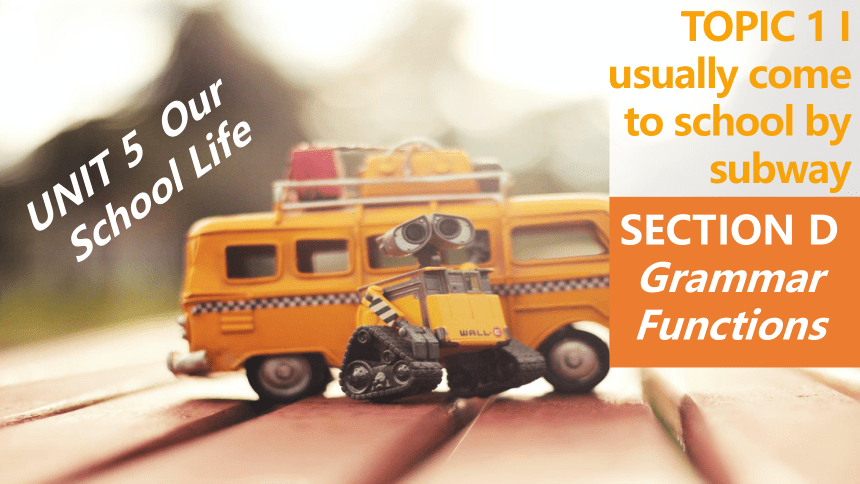 | |
| 格式 | pptx | ||
| 文件大小 | 44.7MB | ||
| 资源类型 | 教案 | ||
| 版本资源 | 仁爱科普版 | ||
| 科目 | 英语 | ||
| 更新时间 | 2023-02-15 19:18:56 | ||
图片预览

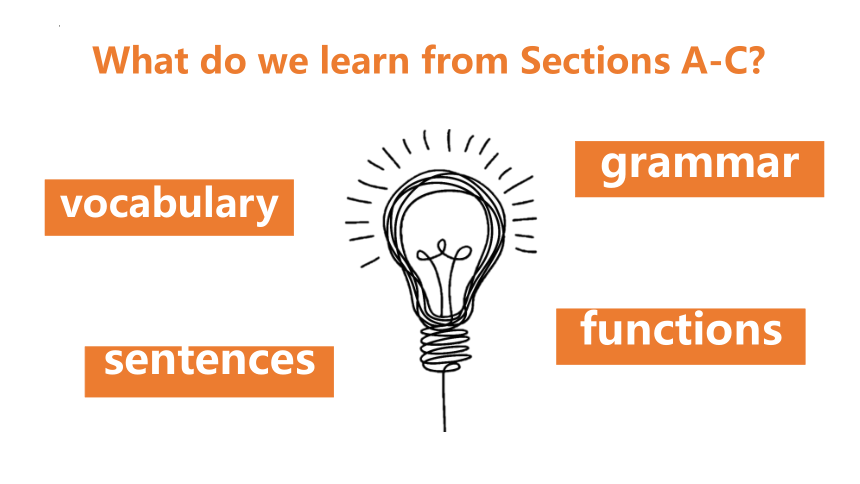
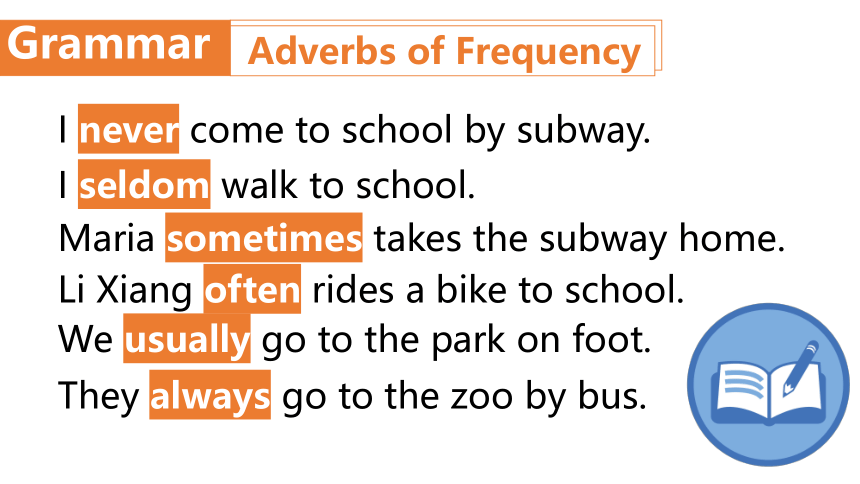
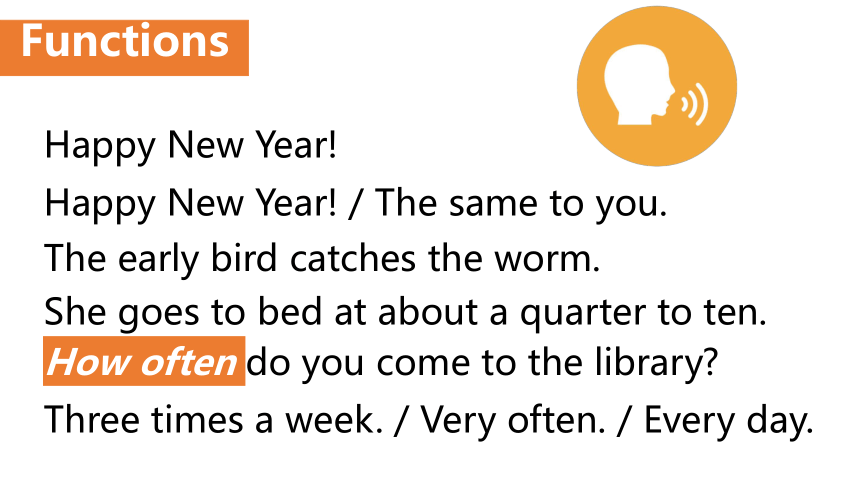
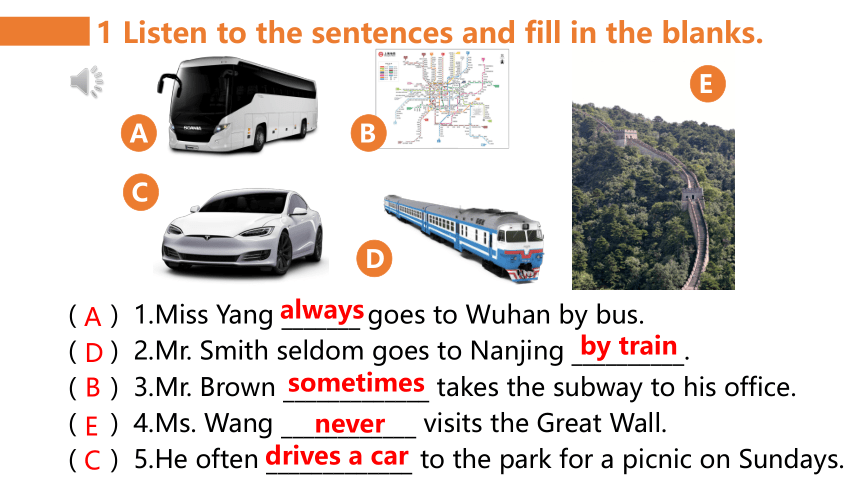
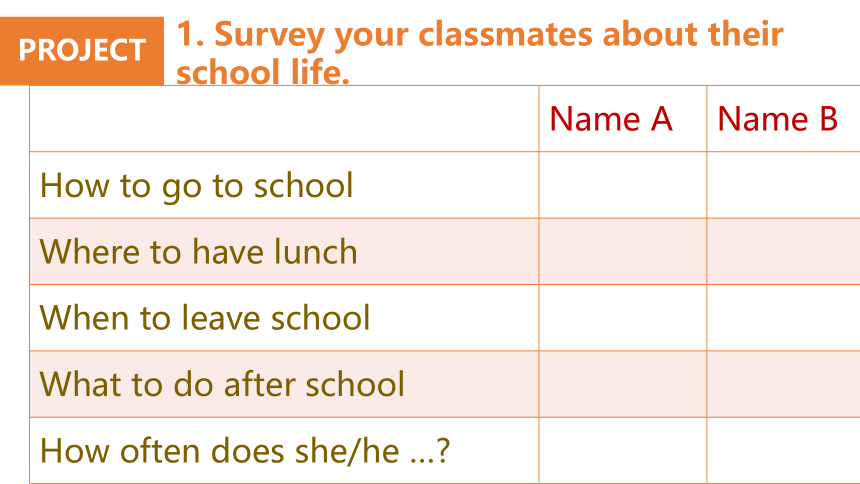
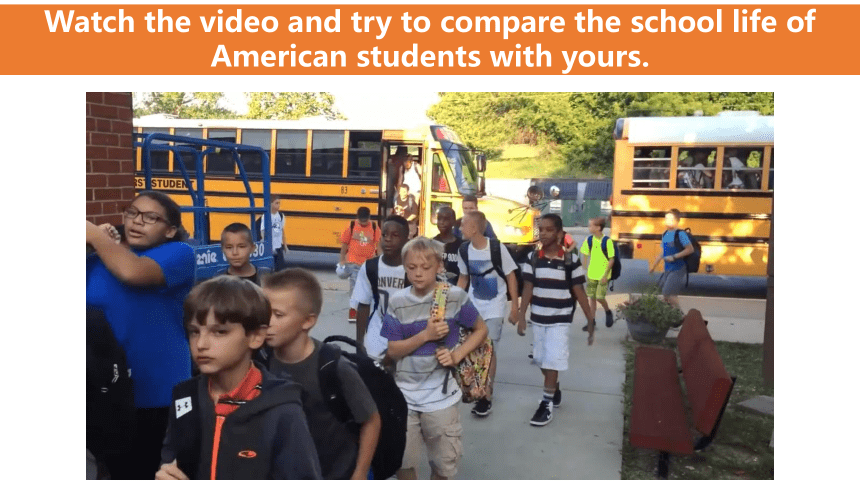
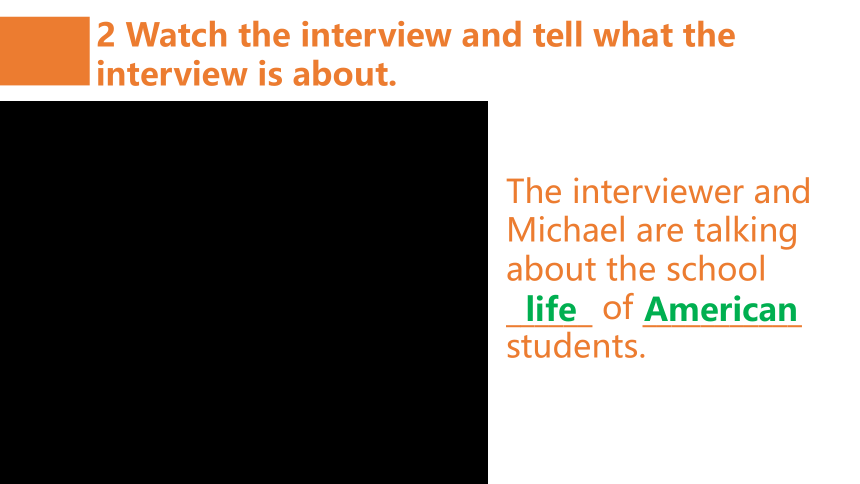
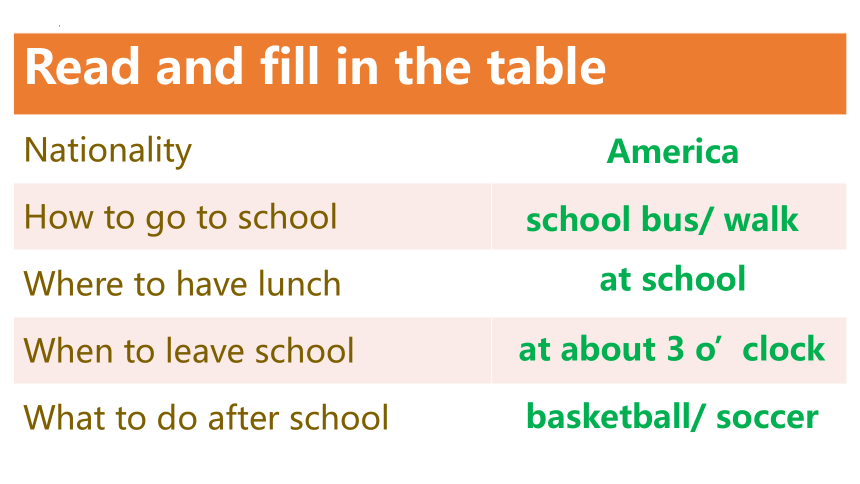
文档简介
(共26张PPT,内嵌音视频)
TOPIC 1 I usually come to school by subway
UNIT 5 Our
School Life
SECTION D
Grammar
Functions
What do we learn from Sections A-C
vocabulary
sentences
grammar
functions
Grammar
I never come to school by subway.
I seldom walk to school.
Maria sometimes takes the subway home.
Li Xiang often rides a bike to school.
We usually go to the park on foot.
They always go to the zoo by bus.
Adverbs of Frequency
Adverbs of Frequency
Happy New Year!
Happy New Year! / The same to you.
The early bird catches the worm.
She goes to bed at about a quarter to ten.
How often do you come to the library
Three times a week. / Very often. / Every day.
Functions
( )1.Miss Yang _______ goes to Wuhan by bus.
( )2.Mr. Smith seldom goes to Nanjing __________.
( )3.Mr. Brown _____________ takes the subway to his office.
( )4.Ms. Wang ____________ visits the Great Wall.
( )5.He often _____________ to the park for a picnic on Sundays.
always
never
by train
sometimes
drives a car
1 Listen to the sentences and fill in the blanks.
A
C
E
D
B
A
B
C
D
E
Name A Name B
How to go to school
Where to have lunch
When to leave school
What to do after school
How often does she/he …
1. Survey your classmates about their school life.
PROJECT
Watch the video and try to compare the school life of American students with yours.
2 Watch the interview and tell what the interview is about.
The interviewer and Michael are talking about the school ______ of ___________ students.
life
American
Read and fill in the table Nationality
How to go to school
Where to have lunch
When to leave school
What to do after school
America
school bus/ walk
at school
at about 3 o’clock
basketball/ soccer
Watch and say
Interviewer: Good evening, boys and girls! Please welcome our new friend, Michael. He’s from America. Hello, Michael!
Michael: Hello!
Interviewer: We’d like to know about the school life of American students. How do they usually go to school
Michael: Well, many students take a yellow school bus or walk to school.
Interviewer: Where do they usually have lunch
Michael: They usually have lunch at school and then begin class at about one o’clock in the afternoon.
Interviewer: What time is school over, then
Michael: At about three o’clock.
Interviewer: What do they do in their free time
Michael: They often play basketball and soccer.
Interviewer: Well, I’m sorry we have no more time. Nice talking to you. Thank you.
Key Points
We’d like to know about the school life of American students.
(1)we’d like=we would like, would like意为“想要”
would like sth. I would like some food.
would like to do He would like to ride a bike to school.
would like sb. to do sth. My father would like me to study hard.
want sth. I want some food.
want to do He wants to ride a bike to school.
want sb. to do sth. My father wants me to study hard.
would like 和 want 的区别:would 没有人称和数的变化
Key Points
(2) know about/of sth.
My brother knows a little about/ of cars.
(3)life 生活:the happy life of my family
life(lives)生命:the lives of five children
Key Points
2. Well, many students usually take a yellow school bus or walk to school.
and or Meaning 和,又,而 或者,否则
Grammar (1)并列连词,and所连接的词语或者句子属于并列关系,前后无矛盾。 例:I take a bus and then ride a bike home. (1)并列连词,or所连接的词语或者句子有“要么这样,要么那样”的意思,有选择的意味。
例:I often take a bus or the subway home.
(2)多用于肯定句 (2) 多用于否定句、疑问句
—Do you have any brothers or sisters —Yes, I have a brother and a sister. —No, I don’t have any brothers or sisters.
Key Points
2. Well, many students usually take a yellow school bus or walk to school.
and or Meaning 和,又,而 或者,否则
Grammar (1)并列连词,and所连接的词语或者句子属于并列关系,前后无矛盾。 例:I take a bus and then ride a bike home. (1)并列连词,or所连接的词语或者句子有“要么这样,要么那样”的意思,有选择的意味。
例:I often take a bus or the subway home.
(2)多用于肯定句 (2) 多用于否定句、疑问句
—Do you have any brothers or sisters —Yes, I have a brother and a sister. —No, I don’t have any brothers or sisters. Key Points
4. What time is school over, then
Over用法 形容词、副词 结束的,完结的 Class is over.
介词 (数量) 多于…… Kids over 15 can go swimming.
介词 在……上面(但未接触) A plane is over the hill.
Key Points
5. What do they do in their free time
在空闲时间:in one’s free time = in one’s spare time
I often play basketball in my free/ spare time.
4. They often play basketball and soccer.
play + 球类名词:play football/ Ping-Pong / volleyball
play + the + 乐器名词: play the guitar/ the violin
Key Points
6. Well, I’m sorry we have no more time.
(1)I’m sorry + 从句,意为“非常遗憾……,很抱歉……”
I’m sorry I’m late.
(2)more用作限定词,意为“更多”。
We have more English classes.
【拓展】no more,意为“不再……”
=not … any more
He is no more a student. = He isn’t a students any more.
Key Points
7. Nice talking to you.
(1)谈话后的告别用语:Nice + doing sth.
Nice to meet you. 见到你高兴。
(初次见面时)
Nice meeting you. 能跟你见面真高兴。
(初次见面后)
(2)talk,不及物动词
谈话对象:talk with/ to He is talking to/with her.
谈话内容:talk about/of He is talking about the movie.
Read and act out the interview
Nationality America
How to go to school usually take a yellow school bus or walk to school
Where to have lunch usually at school
When to leave school at about 3 o’clock
What to do after school often play basketball and soccer
2. Compare the school life of American students with yours and report it to the class.
PROJECT
Chinese students American students
means of transportation walk, by bike or by bus walk, or by school bus
class size about 40 or 50 smaller
school-time 7:30-17:30 8:00-15:00
activities after school do homework the poor: part-time job
the rich: extra education
3. Write a passage. You may use the expressions in Functions if necessary.
You may begin like this:
The school life of American students is different from ours …
PROJECT
SUMMARY we learn words great, wall, life, American, over, more, talk
phrases the Great Wall, in their free time
sentences I’m sorry we have no more time.
Nice talking to you.
we can talk about the difference between the school life of American students and that of Chinese students Memorize the new words and phrases.
Review the phrases and adverbs of frequency.
Write a passage of “The school life of Chinese students and American students”.
HOMEWORK
TOPIC 1 I usually come to school by subway
UNIT 5 Our
School Life
SECTION D
Grammar
Functions
What do we learn from Sections A-C
vocabulary
sentences
grammar
functions
Grammar
I never come to school by subway.
I seldom walk to school.
Maria sometimes takes the subway home.
Li Xiang often rides a bike to school.
We usually go to the park on foot.
They always go to the zoo by bus.
Adverbs of Frequency
Adverbs of Frequency
Happy New Year!
Happy New Year! / The same to you.
The early bird catches the worm.
She goes to bed at about a quarter to ten.
How often do you come to the library
Three times a week. / Very often. / Every day.
Functions
( )1.Miss Yang _______ goes to Wuhan by bus.
( )2.Mr. Smith seldom goes to Nanjing __________.
( )3.Mr. Brown _____________ takes the subway to his office.
( )4.Ms. Wang ____________ visits the Great Wall.
( )5.He often _____________ to the park for a picnic on Sundays.
always
never
by train
sometimes
drives a car
1 Listen to the sentences and fill in the blanks.
A
C
E
D
B
A
B
C
D
E
Name A Name B
How to go to school
Where to have lunch
When to leave school
What to do after school
How often does she/he …
1. Survey your classmates about their school life.
PROJECT
Watch the video and try to compare the school life of American students with yours.
2 Watch the interview and tell what the interview is about.
The interviewer and Michael are talking about the school ______ of ___________ students.
life
American
Read and fill in the table Nationality
How to go to school
Where to have lunch
When to leave school
What to do after school
America
school bus/ walk
at school
at about 3 o’clock
basketball/ soccer
Watch and say
Interviewer: Good evening, boys and girls! Please welcome our new friend, Michael. He’s from America. Hello, Michael!
Michael: Hello!
Interviewer: We’d like to know about the school life of American students. How do they usually go to school
Michael: Well, many students take a yellow school bus or walk to school.
Interviewer: Where do they usually have lunch
Michael: They usually have lunch at school and then begin class at about one o’clock in the afternoon.
Interviewer: What time is school over, then
Michael: At about three o’clock.
Interviewer: What do they do in their free time
Michael: They often play basketball and soccer.
Interviewer: Well, I’m sorry we have no more time. Nice talking to you. Thank you.
Key Points
We’d like to know about the school life of American students.
(1)we’d like=we would like, would like意为“想要”
would like sth. I would like some food.
would like to do He would like to ride a bike to school.
would like sb. to do sth. My father would like me to study hard.
want sth. I want some food.
want to do He wants to ride a bike to school.
want sb. to do sth. My father wants me to study hard.
would like 和 want 的区别:would 没有人称和数的变化
Key Points
(2) know about/of sth.
My brother knows a little about/ of cars.
(3)life 生活:the happy life of my family
life(lives)生命:the lives of five children
Key Points
2. Well, many students usually take a yellow school bus or walk to school.
and or Meaning 和,又,而 或者,否则
Grammar (1)并列连词,and所连接的词语或者句子属于并列关系,前后无矛盾。 例:I take a bus and then ride a bike home. (1)并列连词,or所连接的词语或者句子有“要么这样,要么那样”的意思,有选择的意味。
例:I often take a bus or the subway home.
(2)多用于肯定句 (2) 多用于否定句、疑问句
—Do you have any brothers or sisters —Yes, I have a brother and a sister. —No, I don’t have any brothers or sisters.
Key Points
2. Well, many students usually take a yellow school bus or walk to school.
and or Meaning 和,又,而 或者,否则
Grammar (1)并列连词,and所连接的词语或者句子属于并列关系,前后无矛盾。 例:I take a bus and then ride a bike home. (1)并列连词,or所连接的词语或者句子有“要么这样,要么那样”的意思,有选择的意味。
例:I often take a bus or the subway home.
(2)多用于肯定句 (2) 多用于否定句、疑问句
—Do you have any brothers or sisters —Yes, I have a brother and a sister. —No, I don’t have any brothers or sisters. Key Points
4. What time is school over, then
Over用法 形容词、副词 结束的,完结的 Class is over.
介词 (数量) 多于…… Kids over 15 can go swimming.
介词 在……上面(但未接触) A plane is over the hill.
Key Points
5. What do they do in their free time
在空闲时间:in one’s free time = in one’s spare time
I often play basketball in my free/ spare time.
4. They often play basketball and soccer.
play + 球类名词:play football/ Ping-Pong / volleyball
play + the + 乐器名词: play the guitar/ the violin
Key Points
6. Well, I’m sorry we have no more time.
(1)I’m sorry + 从句,意为“非常遗憾……,很抱歉……”
I’m sorry I’m late.
(2)more用作限定词,意为“更多”。
We have more English classes.
【拓展】no more,意为“不再……”
=not … any more
He is no more a student. = He isn’t a students any more.
Key Points
7. Nice talking to you.
(1)谈话后的告别用语:Nice + doing sth.
Nice to meet you. 见到你高兴。
(初次见面时)
Nice meeting you. 能跟你见面真高兴。
(初次见面后)
(2)talk,不及物动词
谈话对象:talk with/ to He is talking to/with her.
谈话内容:talk about/of He is talking about the movie.
Read and act out the interview
Nationality America
How to go to school usually take a yellow school bus or walk to school
Where to have lunch usually at school
When to leave school at about 3 o’clock
What to do after school often play basketball and soccer
2. Compare the school life of American students with yours and report it to the class.
PROJECT
Chinese students American students
means of transportation walk, by bike or by bus walk, or by school bus
class size about 40 or 50 smaller
school-time 7:30-17:30 8:00-15:00
activities after school do homework the poor: part-time job
the rich: extra education
3. Write a passage. You may use the expressions in Functions if necessary.
You may begin like this:
The school life of American students is different from ours …
PROJECT
SUMMARY we learn words great, wall, life, American, over, more, talk
phrases the Great Wall, in their free time
sentences I’m sorry we have no more time.
Nice talking to you.
we can talk about the difference between the school life of American students and that of Chinese students Memorize the new words and phrases.
Review the phrases and adverbs of frequency.
Write a passage of “The school life of Chinese students and American students”.
HOMEWORK
同课章节目录
- Unit 5 Our school life
- Topic 1 I usually come to school by subway.
- Topic 2 A few students are running around the play
- Topic 3 My school life is very interesting.
- Unit 6 Our local area
- Topic 1 Is there a computer in your study?
- Topic 2 My home is in an apartment building.
- Topic 3 Which is the way to the hospital?
- Review of Units 5-6
- Unit 7 The Birthday
- Topic 1 When is your birthday?
- Topic 2 Can you sing an English song?
- Topic 3 Everyone had a good time.
- Unit 8 The seasons and the Weathe
- Topic 1 What's the weather like in summer?
- Topic 2 The summer holidays are coming.
- Topic 3 Let’s celebrate!
- Review of Units 7-8
- 旧版资料
- Unit 5 Our School Life
- Unit 6 Our Local Area
- Unit 7 The Birthday
- Unit 8 The seasons and the Weathe
- Unit 7 Celebrating the Birthday(老版本)
